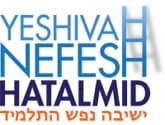The Parsha of Dina is hard, both to read and understand. Dina was perhaps the first Jewish teen to “Go hang out in the Park” or “Go for a Shabbos walk”. Like the Torah says, she was just curious to see what is out there, and unfortunately fell into tragedy.
What is important though is how the matter was dealt with. Leaving aside what Shimon and Levi actually did, which Yaakov disagreed with, form the beginning, this was dealt with as a family matter, not isolated to Dina. Yaakov waited for the Brothers to arrive before speaking with Chamor. The Brothers, the chumash says, were not only disturbed by what happened, but also that “such a thing is not done to Bnei Yisroel”.
Kids have struggles, and often we are frightened about the influence they could have on siblings while going through that struggle. Still, it is important to make sure that the child does not feel that they are struggling alone, that they are part of a family that they are responsible to and is in turn responsible for them. In this way Shimon coxed Dina out of Shechem, and though chastised by Yaakov for what they did, ultimately Yaakov was silent (implying agreement) when Shimon and Levi related that they could not stand by and do nothing for their sister.
The mentioning of Devorah the wet-nurse of Rivkah, who dies in this week’s parsha, seems superfluous. The mefarshim discuss what she was doing there and what her death implies to Yaakov, however it does not discuss her directly. What do we know about her? We know that Devorah was very close with raising Rivka, and that, being of such a young age when she left to marry Yitzchak, Devorah accompanied her to continue to care for her. Chazal often tell us to look at a name to understand a person’s essence. What does “Devora HaMenika” teach us about her? Devorah, the bee which produces honey, and Menika (wet-nurse) involving milk. Chalav U’Dvash. The Gemara tells us that both of these substances have characteristics of being pure substances derived from impure sources (milk form blood, honey from bees). Perhaps this was Devorahs specialy, finding the good in the bad, developing purity and holiness in a place of tumah, as Rivkah, born in a family steeped in Avodah Zara and immorality developed into one of the Imahot. Devorah was there too with Yaakov as he raised his children, the Shevatim who would become Am Yisroel, in Galus, in the house of Lavan. Looking at it now, the death of Devorah must have been very significant for Yaakov and all his family. Likewise, there was a very important connection between Devorah and Rivkah, so that it is no surprise that her death is correlated with Rivkah’s. We owe more to Devorah than we realized, as she was responsible for the education of both Rivka and the shevatim and perhaps was responsible for cultivating Klal Yisroel in that difficult place into an Am. As educators, we must be disciples of Devorah, seeing the purity in every child no matter their background and surroundings. We must see past the Tumah surrounding them threatening to engulf them and see the seeds of Kedusha inside them, thirsy and ready to grow.
Have a great Shabbos,
Ari Deutscher MSW
Menahel

Leave A Comment